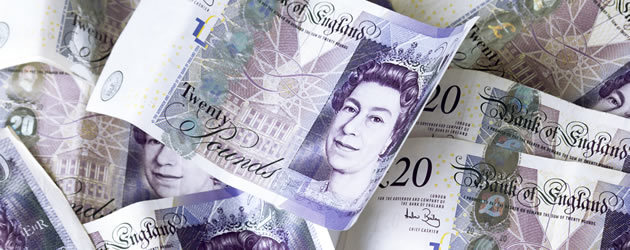The Pound Sterling to Euro (GBP/EUR) exchange rate rallied sharply to trade back above the 1.37 level on Wednesday afternoon.
The Pound Sterling to Euro (GBP/EUR) exchange rate touched a session high of 1.3756
Worries over the Greek crisis weighed upon sentiment towards the Euro and weaker than-forecast industrial production data out of France added to the pressure upon the single currency.
Industrial production in the Eurozone’s second largest economy rose by 1.1% on a year-on-year basis, a drop from the preceding month’s figure of 1.3%. Month-on-month production disappointed as it declined by -0.9%. Economsts had been expecting a rise of 0.4%.
A deal between Greece and its creditors remains unlikely after European ministers rejected the latest economic form proposals put forward by Athens. The uncertainty around the situation is likely to continue to weigh heavily upon the Euro exchange rate.
NIESR GDP Data Supports GBP/EUR Exchange Rate
Later in the session the Pound Sterling received support from data released by the National Institute for Economic and Social Research.
NIESR said it estimated that UK GDP in the three months to May was 0.6% higher than the 0.5% recorded in the previous three-month period. The figure meant that the UK economy expanded at its fastest pace since January.
NIESR forecasts Britain’s economy will grow by 2.5 percent this year, slightly above its long-run average.
‘These estimates are consistent with a rebound of economic growth in the second quarter of this year,’ NIESR said.
Also supporting the Pound Sterling was data released earlier in the session which showed that industrial production in the UK improved in April. Production was shown to have increased by 0.4% and 1.2% on a monthly and annual basis. Both figures beat economist expectations for 0.1% and 0.6% respectively.
Economists are now focusing on this evenings Mansion House speeches due to be delivered by Chancellor George Osborne and Bank of England (BoE) governor Mark Carney.
Mr Osborne is expected to outline his plans to introduce a budget surplus rule into law and to revive the Commissioners for the Reduction of the National Debt. The surplus plans would require future governments to run a budget surplus when the economy was growing. The revival of the Commission would resurrect the group which last sat in 1860 and whose task was to ensure that government spending plans were closely monitored.
BoE governor Mark Carney is expected to be watched closely for any suggestions as to when the central bank will choose to raise interest rates.



